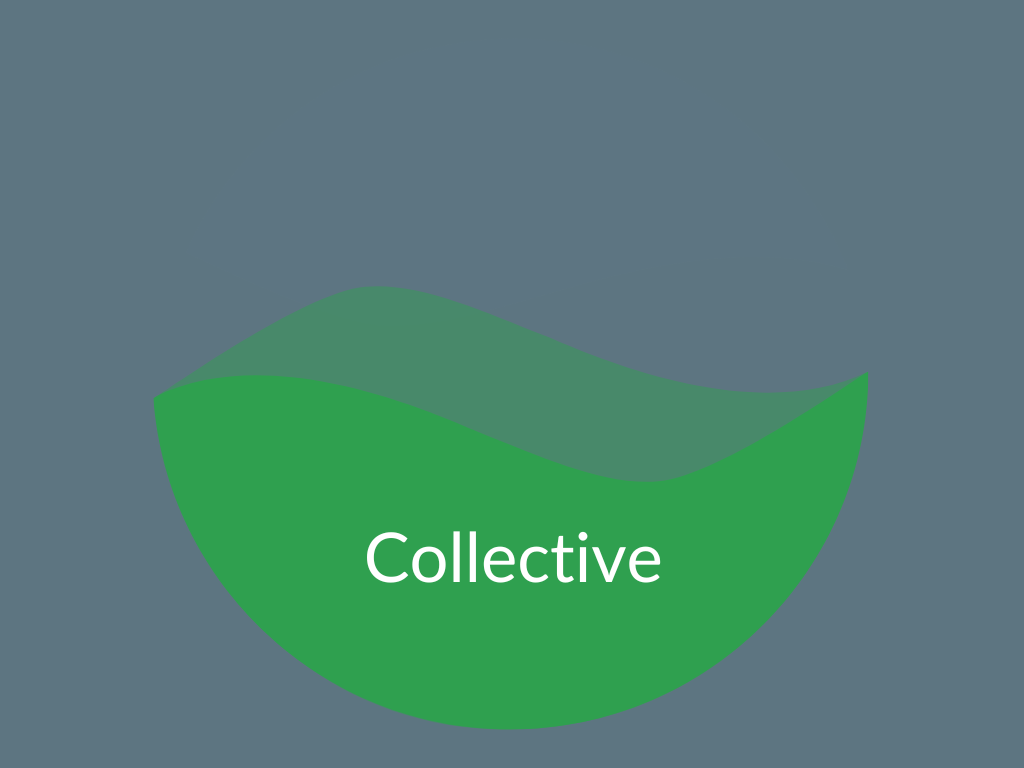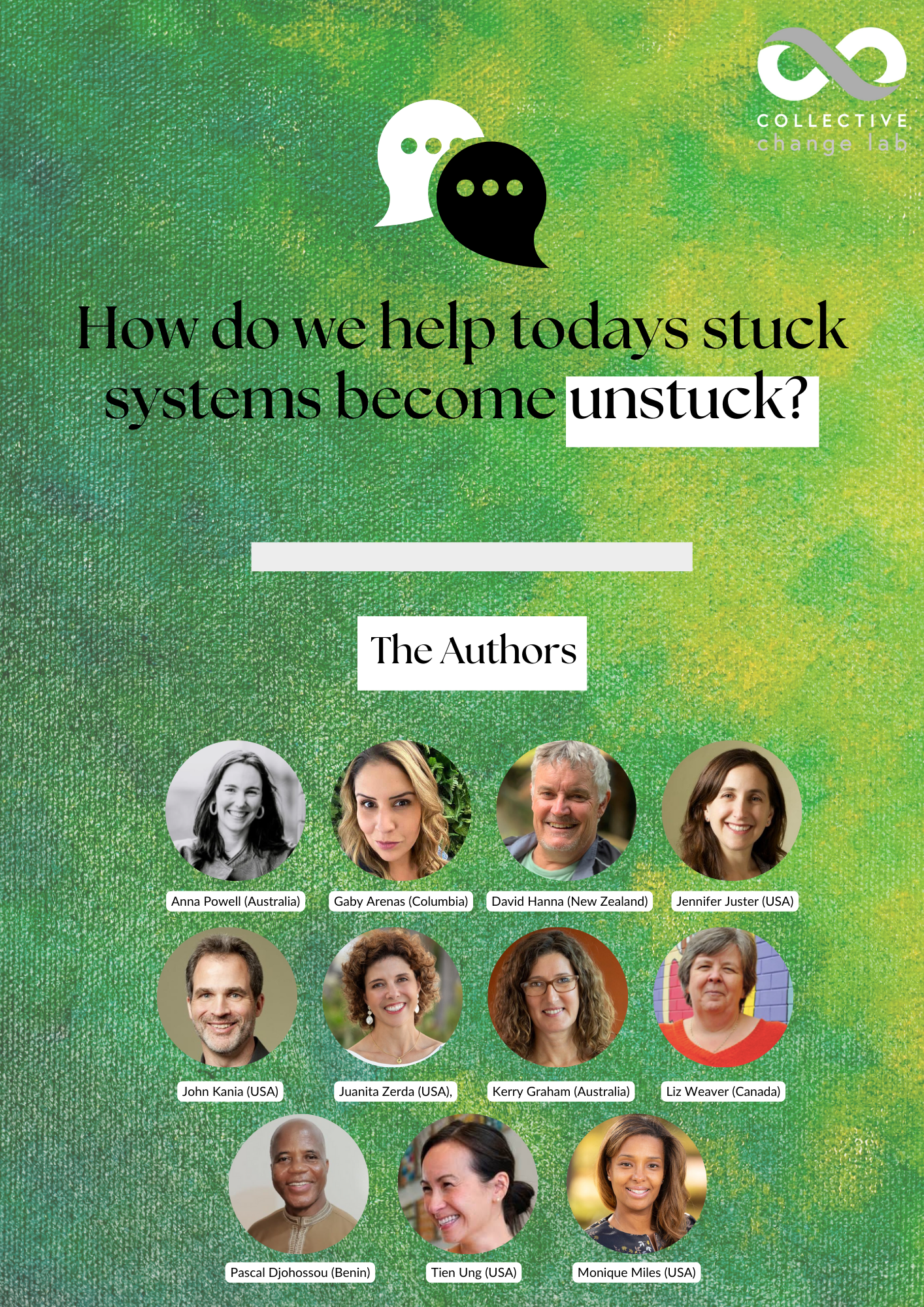Quick Links:
Cultivating Conditions
This work will likely be both uncomfortable and liberating. Discomfort will come through mental models and identity being challenged, and by some of the individual work happening publicly within the Collective. Liberation will come because doing this individual work is immensely rewarding and restorative, and will make you a better leader.
Cultivating the conditions is about preparing ourselves and our collaboration for the work of building Collective Power. It is essential foundational work, and the most underdone, rushed or even avoided part. Cultivating conditions is highly deliberate work - often slow and gentle. It is the intentional tilling of the soil so that when seeds are planted they take with strong roots and are able to grow tall over time. This work is often invisible, and only becomes visible when the seeds either fail or flourish.
Our frame
At CCL we made sense of our learning by deepening our framework for collective building power to transform systems.
For Collective Power to have the potential to transform systems, conditions must be cultivated at two levels - the individual level and within the collective.
Individual level
Collective Power becomes possible when enough leaders in Collectives change their own relationship with and use of power. Broadly, we learnt that the individual work of leaders is in 3 phases:
Leaders connecting with their ancestral and lived experiences that shape their understanding of power, how they use it, and what triggers & biases they hold.
Leaders reckoning with their ancestral and lived role in perpetrating and maintaining systemic harm .
Leaders reckoning with what they have lost by being raised in and upholding Western approaches to power. This step involves reconnecting to and valuing collectivist qualities of interdependence, shared accountability, ritual and the sacred, and connection to nature.
Collective level
Collective Power does not simply emerge. It requires careful, consistent and skilled building of conditions within a Collective. Building conditions means building shared:
Commitment to an ongoing process where it is understood that:
Internally - the Collective’s progress towards Collective Power will be iterative and non-linear: 2-steps forwards, 1-step back.
Externally - the dominant ways power is used in the systems the Collective is seeking to change will periodically assert themselves. In some instances, the collaboration’s emerging Collective Power will not be developed or resilient enough and power dynamics will revert back to status quo. Collaborations need to be aware that this ‘snapback’ is inevitable and requires fast action and redoubling of effort.
Willingness to examine and change the collaboration’s beliefs & structures. This includes the collaboration:
strengthening its relational practice to enable people to participate in more full and authentic ways - deepening trust, introducing time for storytelling, ritual and embodiment, and fostering shared values.
examining both formal and informal power dynamics, addressing structural barriers and inequities, and working towards creating a more transparent and inclusive environment.
Below we share learnings and questions about what it takes to cultivate conditions. We acknowledge the wisdom and generosity of those we have learnt with and call out their thought and practice leadership.
Who we learnt with
Over 2024 / 2025, Collective Change Lab convened a global community of practice on Collective Power. Four members of that community led our learning on what it takes to cultivate conditions within ourselves and within collaborations in order to build Collective Power that transforms systems.
Liz Skelton on becoming power aware
Liz shared her knowledge from her role as a capacity builder, practitioner and researcher of power and systems change. Below we share a summary of what Liz shared in our community and how she articulately makes the case for ‘doing’ the individual work:
“Taking up a leadership role in systems change work requires investment in understanding our relationship with power, how we wield it, and our willingness to engage in difficult conversations about power dynamics – including the shadows of colonialism and the complexities of authority. It's all too common for us to underestimate our own power while elevating others', inadvertently fueling conflicts and roadblocks. Recognizing and embracing our own power isn't just important for leadership – it's the fuel that ignites transformative change. It's about shifting our mindset to understand the fluidity of power, providing more options in using power from resistance to using it to build networks and partner with those we’re seeking to make change with. Acknowledging and harnessing our power, whether formal or informal, is the cornerstone of driving positive change in our communities and organizations. And mastering the art of wielding power effectively isn't just a skill – it's a journey of self-discovery, guided by self-awareness, feedback from others, and a willingness to challenge the status quo.”
Read more about Liz’s contributions to the field at Deep Collaboration and Collaboration for Impact.
Habiba Nabatu on understanding your own power
Habiba shared her own story. She named her story ‘The Long View of Power’ and shared how she has embarked on a year-long journey to better understand, see and use her power differently.
In tracing The Long View of Power, Habiba shared how she saw:
The origins of life and the cycles of civilization - how each cycle further separated us from the natural ecosystem to the point that human communities now exert control over the natural ecosystem that we once were part of.
Planetary power - the ancient power of nature, of the earth; that existed way before humans arrived and how we are damaging, killing that power.
Weternism - 600 years of European domination means that war, slavery, theft and genocide are cemented in our mids and bodies, and the cultural foundations of all our institutions.
The patterns in herself - her sickness of the spirit, the separation within herself (mind / body, human / non human; male / female), and what knowledges dominate and are considered legitimate.
Habiba embodied what it takes to cultivate conditions within yourself. She powerfully shaped our thinking about how Western domination shapes our view of power, and how another view is both present and possible. .
Adrian Brown on shifting collectively-held mental models
Adrian shared his experience in working with governments as a strategic advisor and capacity builder. Adrian explored how governments could embody Collective Power by reimagining people as citizens.
Adrian opened his presentation by positing that government - in theory - should be the ultimate expression of Collective Power as it is designed to represent the people and reflect their shared values and aspirations. But, in reality, government falls short of this ideal because it operates from a mental model where it behaves in ways where:
Populations, land, and resources are seen as measurable and administrable.
Top-down, technocratic solutions are preferred as ways to respond to societal challenges.
Compliance is valued and enforced, often at the expense of local knowledge and nuance.
It explored what might happen if governments shifted this mental model by framing people from ‘subjects’ to ‘citizens’, Adrian offered governments would behave in ways where they would:
Share power with those best placed to act
Think systemically, acts locally
Challenge unnecessary hierarchy and collaborate across boundaries
Seek our strengths and build on them
Champion the voices of those who are heard the least
Optimise for learning rather than control
Adrian concludes that these behaviours would set the conditions for governments to build and enable Collective Power.
Adrian's sharing enabled the community of practice to distill how the work of cultivating conditions in a collaborative is underpinned by:
the long and often invisible work of creating new mindsets through creating new experiences
creating and protecting space to suspend ‘doing’ and examine ‘being’
anchoring the work in shared principles
leaning into truth through the stories and leadership of those most impacted
orienting people to ‘learning towards’ the intended impact
Cassio Aoqui on creating new experiences in order to shift entrenched mindsets
Cassio shared his experience working with Consulado da Mulher, a Brazilian foundation empowering women through entrepreneurship. He and his team partnered with the foundation at Whirlpool, a large corporation, to shift from linear social change practices toward a more relational approach centered on the needs of the women involved.
Cassio shared that a change in leadership allowed Cassio and his team to curate new experiences where leaders connected with and ultimately centered the needs of women. These experiences enabled new mindsets to emerge and entrenched power dynamics to shift. The new behaviours flowed through leadership, organisational functions and program design. The new program approach resulted in comparatively better outcomes among the women, including increased entrepreneurial identity, personal growth, and knowledge-seeking behavior.
Our invitation to others to learn
Over the last 2 years we have partnered with others to publicly invite leaders with dominant power to ‘do’ the individual and collective work required to use their power differently.
The first article we co-authored was published in February 2025. It was called How do we help todays stuck systems become unstuck? and 11 co-authors invited leaders to the individual work of:
Cultivating mental models that value equity, diversity, shared humanity and the transformative power of community.
Exhibiting leadership that publicly commits to relational work.
This outwardly looks like:
staying in the work even when it gets ‘hot’
judiciously leaning into difference
embracing pluralism
being willing to engage with complexity rather than simplifying it for order, measures and impact.
Developing personal practices of being radically honest about our intention, and growing our capacity for mutual accountability, self-reflection, and self-care.
Appreciating our own need for ‘healing’ from past trauma, acknowledging the systemic and historical trauma inflicted on our communities, and learning how to foster accessible and welcoming spaces and places for collective healing.
In the same article, the co-authors asked leaders with dominant power to recognise their own fear of change, and - more importantly - recognise that releasing that fear requires individual work. The authors called out:
This personal work is both an opportunity and a responsibility. By doing this work, you will show up in collaborations using your inherent power in ways that don’t repeat the harmful patterns of the past. You will help create opportunities for wider groups to gain power, and surface and heal hurts carried in our families, communities and lands.
In linking the individual work to the work of the collective, the co-authors closed by saying:
We ask that when you step into the collaborative space, you lead by being curious about who the collaboration are, where we all come from, what assets we bring to the table, what forms of knowledge we steward, the types of power we have or don’t have, and how we draw on all of these things into collaboratively solving problems. Leading this way will change you. You will grow a deeper appreciation of how your roles and mental models uphold inequitable and unjust systems. And you will foster openness — in yourself and the collaboration — to let go of old patterns, grow new ones that ripple far beyond the collaboration, and achieve things in the name of justice and equity that you could never achieve alone. Leading in this way will allow you to stay long enough in discomfort for new ways of being to emerge, and, ultimately, for systems to heal and transform. We wholeheartedly invite you to step into the relational work required to transform systems towards equity and justice.
Our ongoing questions
Our most expansive learnings about how to cultivate conditions in ourselves and our collaborations came from being in community with fellow learners. So did our most challenging questions. We share them below. If you too are walking with these questions and feel comfortable to share, we invite you to write what you are sensing, doing, and learning (below).
What does transformative leadership look like when it values solidarity, power-shifting and justice? What is the least complex way to build capacity to give up what serves me but harms others?
What is the relationship between dismantling white supremacy and Collective Power building? To what extent can we rid our minds of our colonising mindset at the beginning so as not to replicate and repeat the very patterns we are trying to change?
What would make leaders with dominant power choose to do the individual work required to play their part in building Collective Power that can transform systems towards equity and justice?
Share your reflections
Many of our richest learnings—and toughest questions—have come from being in community with others. If you too are walking with these questions, we warmly invite you to share what you are sensing, doing, and learning.











